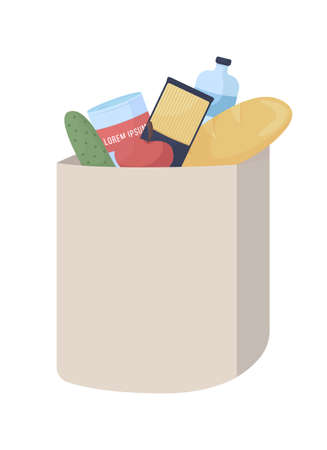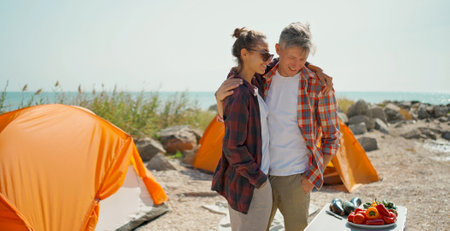1. Understanding Eco-Friendly Packing
Eco-friendly packing is all about making mindful choices to reduce waste, conserve resources, and protect the beautiful landscapes that make UK campsites so special. In the UK, where wild camping is limited and responsible outdoor conduct is highly valued, understanding what makes your packing sustainable is crucial. This means opting for reusable containers over single-use plastics, choosing biodegradable or recyclable materials, and minimising excess packaging whenever possible. The significance of eco-friendly packing extends beyond personal convenience—every little effort helps reduce landfill waste, keeps local wildlife safe from litter, and preserves natural beauty for future generations. By embracing sustainable packing habits, campers can play their part in combating climate change and ensuring that both popular sites like the Lake District and hidden gems across Britain remain pristine. With a bit of planning and the right mindset, eco-conscious packing becomes second nature, turning every camping trip into an opportunity to tread lighter on the land.
Choosing Sustainable Gear and Materials
Packing sustainably for your next British camping trip starts with making smart choices about the gear and materials you bring. UK campsites are increasingly encouraging eco-friendly practices, so opting for reusable, recyclable, or compostable options is both practical and respectful to local environments. Here’s how you can make your packing list more sustainable while still keeping things simple and efficient.
Reusable Essentials for Campsite Life
One of the easiest ways to reduce waste is by investing in quality reusable items. Instead of single-use plastics, consider alternatives that can be cleaned and used time after time. Below is a quick comparison table highlighting popular reusable items versus their disposable counterparts:
| Item | Reusable Option | Disposable Alternative |
|---|---|---|
| Cups & Mugs | Stainless steel travel mugs | Paper/plastic cups |
| Cutlery | Bamboo or metal cutlery set | Plastic cutlery |
| Water Bottles | Refillable BPA-free bottles | Single-use water bottles |
Recyclable and Compostable Packing Materials
If reusables aren’t always practical—say you’re on a longer trek—opt for recyclable or compostable packaging. Many UK supermarkets now offer compostable sandwich bags, biodegradable bin liners, and recyclable foil wraps. When selecting these, check the packaging for UK recycling symbols or home composting labels to ensure they meet local standards.
Practical Tips for Sustainable Packing at UK Campsites
- Use cloth bags for groceries and laundry instead of plastic carriers.
- Choose beeswax wraps over cling film for food storage—they’re reusable and biodegradable.
- If you must use wipes, look for plant-based compostable options rather than synthetic ones.
Avoiding Over-Packaging
Wherever possible, decant toiletries into small refillable bottles before you leave home. This reduces the need for extra packaging and helps keep your rucksack light. Also, remove excessive packaging from new gear before heading out; recycle it at home where facilities are more reliable than many rural campsite bins.
Selecting sustainable gear isn’t just about being green—it’s about convenience, compliance with campsite rules, and enjoying the great British outdoors without leaving a trace. By following these practical tips, you’ll have peace of mind knowing your camping adventure treads lightly on the land.

3. Minimising Single-Use Plastics
One of the most effective ways to pack sustainably for a UK camping trip is to drastically cut down on single-use plastics. Not only are these plastics difficult to recycle, but they also often end up polluting our beautiful countryside and campsites. Start by swapping disposable water bottles for a sturdy, reusable bottle – many UK campsites now have refill stations or taps with safe drinking water. When it comes to food storage, opt for reusable containers made from stainless steel or BPA-free plastic instead of cling film or sandwich bags. Beeswax wraps are another brilliant British favourite for keeping snacks fresh without the waste.
Think ahead about your shopping list as well: bring loose fruit and veg in cloth produce bags from home, and choose products with minimal packaging at your local greengrocer or zero-waste shop. For drinks, skip single-use cups and bring an insulated mug or flask; this also keeps your tea hotter for longer on chilly British mornings! If you do need to use any plastic items, make sure they’re clearly labelled as recyclable and take them home if campsite facilities are limited.
By making these simple swaps, you’ll not only lighten your environmental footprint but also set a positive example for fellow campers across the UK.
Packing Light: Essentials vs. Luxuries
When it comes to packing for a sustainable camping trip in the UK, efficiency is key—especially with our famously unpredictable weather and diverse countryside. The goal is to minimise waste and avoid overpacking while making sure you’re prepared for anything from a sudden downpour in the Lake District to a crisp morning on the Cornish coast. The secret? Opt for multi-purpose items that serve more than one function, and be ruthless when distinguishing essentials from luxuries.
Choosing What Really Matters
Start by identifying your absolute necessities. Think about what you genuinely need to stay comfortable, safe, and dry. Multi-functional kit—like a waterproof jacket that doubles as a windbreaker, or a cooking pot that can also be used for eating—is invaluable. Not only does this approach reduce the number of items you carry, but it also cuts down on the amount of packaging waste generated during your trip.
Essentials vs. Luxuries: What to Bring?
| Essentials | Luxuries |
|---|---|
| Multi-layer clothing (quick-drying, thermal) | Heavy jumpers or spare outfits |
| Reusable water bottle & mug | Disposable cups or extra drinkware |
| All-weather tent & footprint | Extra tarps or gazebo |
| Compact first aid kit | Large medical boxes or non-essentials |
| Multi-use utensils (spork, Swiss army knife) | Full cutlery set or single-use plastics |
| Eco-friendly toiletries (solid soap, shampoo bars) | Bottled toiletries and wet wipes |
| Packing cubes/dry bags (for organisation & protection) | Bulky suitcases or multiple bags |
The Value of Versatility
The British outdoors demands gear that works hard. Instead of packing three pairs of shoes, choose one pair suitable for walking and evenings at camp. A sarong or microfibre towel can double as a picnic blanket, scarf, or even an emergency curtain. This not only saves space but also cuts down on excess baggage—making your journey more eco-friendly and less cumbersome on public transport.
Packing Tips for UK Weather
- Layer Up: Pack lightweight layers rather than bulky jumpers; they dry faster and are easier to mix and match.
- Waterproof Everything: Use dry bags for electronics and clothing—even if rain isn’t forecasted.
- Avoid Single-Use Items: Choose reusable beeswax wraps instead of cling film for food storage.
- Plan Meals in Advance: Pre-pack snacks in reusable containers to avoid packaging waste onsite.
- Shoes Matter: One pair of reliable boots will outlast flimsy trainers in wet conditions.
Packing sustainably doesn’t mean sacrificing comfort—it’s about making smarter choices that are better for both you and the environment. With multi-purpose gear and mindful planning, you’ll be ready for any British campsite adventure while treading lightly on the planet.
5. Dealing with Waste Responsibly
When camping in the UK, handling your waste responsibly is just as important as what you pack. Every camper has a duty to protect Britain’s beautiful landscapes, so following the ‘leave-no-trace’ principles is key. Start by sorting your rubbish at source: bring separate bags or reusable containers for recycling and general waste. Most UK campsites provide clear bins for glass, plastics, paper, and landfill—always check site-specific guidance and use these facilities correctly.
If you’re wild camping or find yourself off-grid, plan ahead by taking all your rubbish home with you. Invest in sturdy, sealable bags that won’t leak or attract wildlife during your stay. Remember that compostable items like food scraps often aren’t suitable for local wildlife or may take too long to decompose—so bag them up too.
Never leave litter behind, even small things like bottle caps or tea bags, which can harm animals and spoil the natural setting. If you spot other people’s rubbish on your walkabouts, consider picking it up—this small gesture helps keep UK countryside pristine for everyone.
For grey water (wastewater from washing), always use designated disposal points if available; never pour soapy water directly onto the ground or into waterways. Stick to eco-friendly soaps and detergents to minimise impact if you must wash up onsite.
By following these simple but effective steps, you’ll be doing your bit for sustainability and ensuring our UK campsites remain welcoming havens for future generations of campers.
6. Getting Involved: Supporting Local Sustainability Initiatives
If you’re passionate about making your camping trips in the UK truly eco-friendly, getting involved with local sustainability initiatives is a fantastic way to make a difference. Across the UK, numerous organisations and schemes champion sustainable outdoor activities, encourage responsible camping, and help protect our beautiful countryside for future generations.
UK-Based Organisations Championing Eco-Camping
The Leave No Trace UK movement promotes mindful outdoor practices, providing guidance on reducing waste, respecting wildlife, and leaving campsites pristine. The Green Tourism Scheme accredits campsites and accommodation providers who meet rigorous sustainability standards—look out for their badge when booking your next trip. Additionally, groups like Campsites.co.uk’s Eco-Friendly Collection make it easy to find campsites that prioritise renewable energy, recycling facilities, and sustainable water management.
How Campers Can Contribute
You don’t need to be part of an organisation to have a positive impact. As a camper, you can support these initiatives by choosing accredited eco-friendly campsites, volunteering for local clean-up events (many run by groups like The Woodland Trust or The National Trust), or even organising a litter pick during your stay. Donating to conservation charities or participating in citizen science projects—like recording wildlife sightings through apps such as iRecord—also helps preserve natural habitats.
Making Sustainable Choices Everyday
Your choices matter: opting for UK-made reusable gear, buying locally sourced food, and spreading awareness about sustainable camping all contribute to a greener outdoors. By backing local businesses and supporting conservation schemes, you help build a community of responsible campers dedicated to protecting the UKs wild spaces.
In summary, eco-friendly packing goes beyond what you bring in your rucksack—it’s about engaging with the broader movement towards sustainability. Next time you head out into the British countryside, consider how you can get involved and leave a lasting positive legacy for both people and planet.


